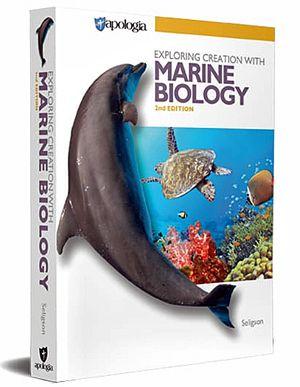Exploring Creation with Marine Biology
Student Text
Apologia Educational Ministries
In order to take this course, students must have completed a first-year biology course, preferably Exploring Creation With Biology. This course concentrates on marine wildlife and marine habitats. It provides a survey of members of each biological kingdom that live in marine environments. The student will learn about the microscopic organisms that make life in the ocean possible, including details about their interesting habits and life cycles. The student will also learn about the anatomy of many macroscopic marine creatures such as clams, starfish, and sharks. The student will then learn how these creatures and their physical surroundings form marine ecosystems such as intertidal zones, estuaries, coral reefs, continental shelf communities, epipelagic communities, and deep-ocean communities. The course ends with a study of marine resources and our relationship with the sea.
Student Text
Apologia Educational Ministries
In order to take this course, students must have completed a first-year biology course, preferably Exploring Creation With Biology. This course concentrates on marine wildlife and marine habitats. It provides a survey of members of each biological kingdom that live in marine environments. The student will learn about the microscopic organisms that make life in the ocean possible, including details about their interesting habits and life cycles. The student will also learn about the anatomy of many macroscopic marine creatures such as clams, starfish, and sharks. The student will then learn how these creatures and their physical surroundings form marine ecosystems such as intertidal zones, estuaries, coral reefs, continental shelf communities, epipelagic communities, and deep-ocean communities. The course ends with a study of marine resources and our relationship with the sea.
- Author
- FormatSoftcover
- Grade LevelGrade 12
- Series
Description
Exploring Creation with Marine Biology
Student Text
Apologia Educational Ministries
In order to take this course, students must have completed a first-year biology course, preferably Exploring Creation With Biology. This course concentrates on marine wildlife and marine habitats. It provides a survey of members of each biological kingdom that live in marine environments. The student will learn about the microscopic organisms that make life in the ocean possible, including details about their interesting habits and life cycles. The student will also learn about the anatomy of many macroscopic marine creatures such as clams, starfish, and sharks. The student will then learn how these creatures and their physical surroundings form marine ecosystems such as intertidal zones, estuaries, coral reefs, continental shelf communities, epipelagic communities, and deep-ocean communities. The course ends with a study of marine resources and our relationship with the sea.
Student Text
Apologia Educational Ministries
In order to take this course, students must have completed a first-year biology course, preferably Exploring Creation With Biology. This course concentrates on marine wildlife and marine habitats. It provides a survey of members of each biological kingdom that live in marine environments. The student will learn about the microscopic organisms that make life in the ocean possible, including details about their interesting habits and life cycles. The student will also learn about the anatomy of many macroscopic marine creatures such as clams, starfish, and sharks. The student will then learn how these creatures and their physical surroundings form marine ecosystems such as intertidal zones, estuaries, coral reefs, continental shelf communities, epipelagic communities, and deep-ocean communities. The course ends with a study of marine resources and our relationship with the sea.
Product Specs
- Author
- FormatSoftcover
- Grade LevelGrade 12
- Series
